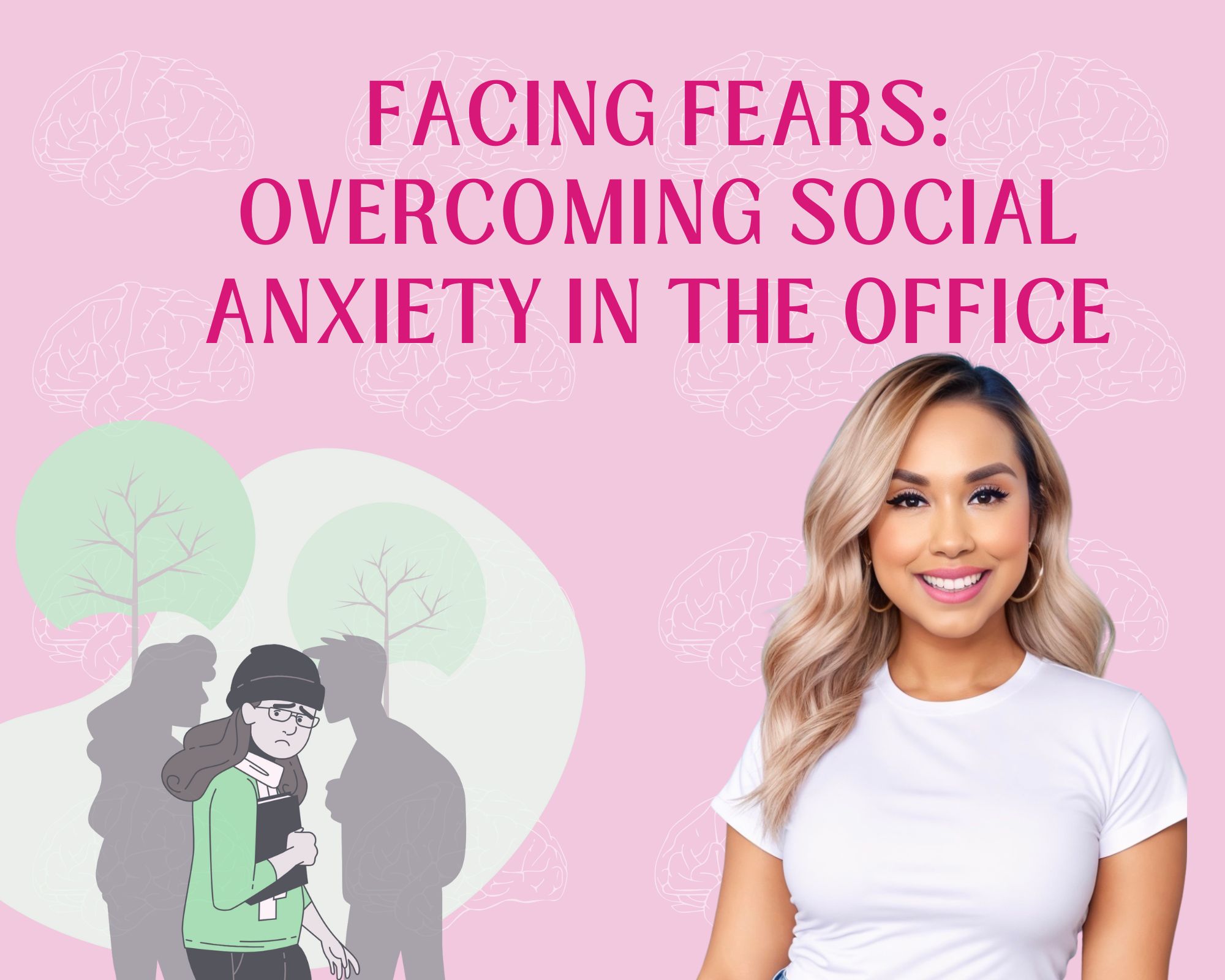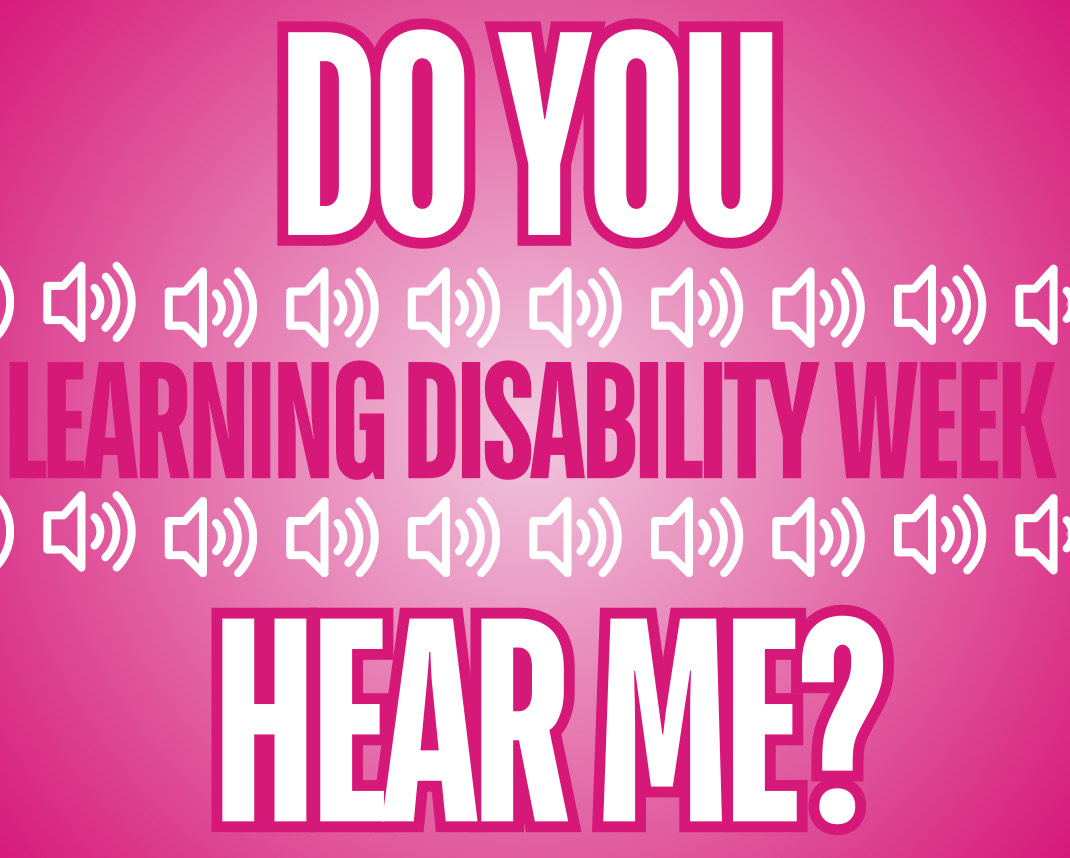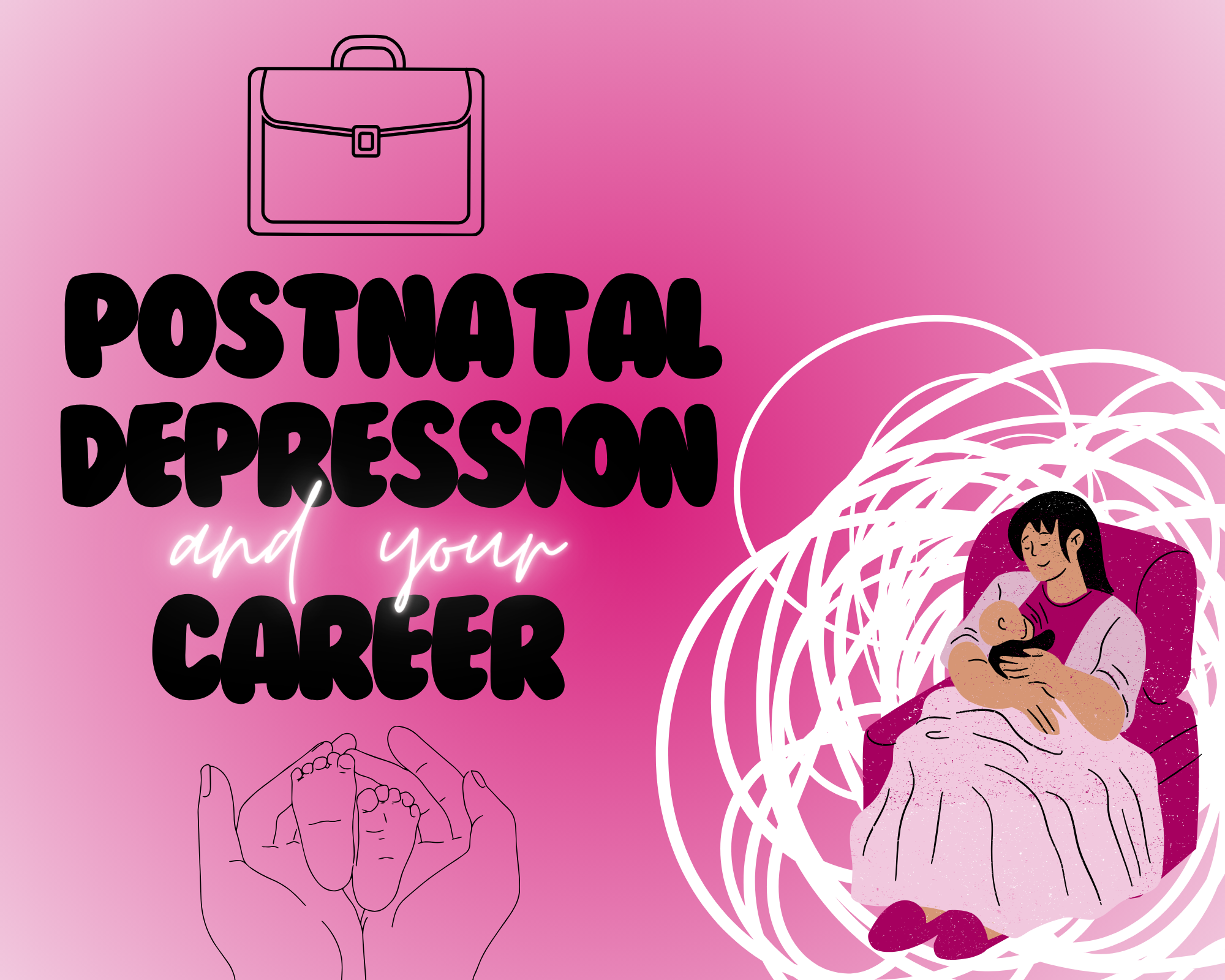“Imagine starting your day filled with dread, worried about all the interactions ahead. Even simple greetings can feel monumental, and making small talk in the break room feels like a nightmare. Making eye contact might seem impossible, and there’s always a fear that your mind will go blank during conversations.”
With the rise of social media, going about your day without face-to-face human interaction is becoming easier and easier. UberEats, iMessage, Hinge, the list goes on… You can do most things now through a phone. Some might say this is great for those with social anxiety, some might say it makes it worse the less you challenge it. What about when you can’t avoid talking to those around you: in the workplace.
Meetings, lunch breaks, small talk. It can all be alot for those who struggle with social anxiety. But why do some of us feel this way? Why can it be so scary to have to interact in the office, and what can we do about it?
Tannia Duenas is a licensed social anxiety therapist. She offers 1:1 support calls as well as courses for people to overcome their anxiety. Her Instagram (@thehealingtherapist) has gained 151k followers where she shares content raising awareness of social anxiety in the corporate world and how to overcome it.
“Some of the most common struggles I hear from my clients is that they avoid speaking up in meetings, they hesitate to share their ideas, or shy away from networking opportunities due to the fear of judgement. This can lead to missed chances for promotions, recognition, and career advancement.
“The constant worry about being judged or making mistakes can be mentally exhausting which often reduces their overall productivity and job satisfaction. Over time, social anxiety robs them of their confidence and self-esteem, making it even harder to take on new challenges or pursue new career goals.”
Social anxiety can make everyday tasks like answering the phone or sending emails nerve-wracking due to the fear of saying the wrong thing or being judged. Asking for help or clarification feels risky, so misunderstandings and mistakes happen. Even lunch breaks can be tough, whether it’s the fear of eating alone or having to socialise. These daily battles with social anxiety can be exhausting and can really affect your productivity and your mental health.
Tannia encourages people to seek help if they feel like their social anxiety is getting in the way of performing their job, socialising or spending time with their loved ones. However, not everyone has access to therapy and so she shares simple tips on her Instagram page to help, including:
- Shift Focus: Turn your attention away from your internal symptoms and thoughts. Instead, focus on the person you’re talking to or your surroundings. This can help you stay present and less self-conscious.
- Mindfulness: Use mindfulness to stay grounded in the present moment. One effective exercise is the 54321 technique: notice five things you can see, four things you can touch, three things you can hear, two things you can smell, and one thing you can taste. This sensory activity helps redirect your focus from your anxiety to your environment, promoting calmness and clarity.
- Acceptance: Accept that anxiety may be present and allow yourself to feel it without judgement. Instead of fighting anxiety, recognize and acknowledge it. For instance, if you feel nervous before a presentation, say to yourself, “I feel anxious right now, and that’s okay.” This approach reduces the power of anxiety over you and encourages a more compassionate mindset towards yourself.
- Stay Present: Focus on your breathing and the immediate task at hand. By concentrating on what you’re doing right now, whether it’s writing an email or participating in a meeting, you can reduce worry about past mistakes or future uncertainties. Deep, slow breaths can also help calm your nervous system.
- Diffusion: Create distance from your anxious thoughts using a technique called diffusion. Instead of getting caught up in your thoughts, observe them as they are. For example, if you’re thinking, “I’m going to mess up this presentation,” reframe it to, “I’m having the thought that I might mess up this presentation.” This simple change helps you see your thoughts as separate from yourself and reduces their emotional impact.
What makes social anxiety tricky to notice is that the symptoms (which include avoiding eye contact, speaking softly, or staying quiet in meetings) are often mistaken for shyness and, sometimes, even rudeness. Education is extremely important so that those who suffer from it are offered the support that they need.
“Providing access to mental health resources, such as counselling services or employee assistance programs, is crucial. Encouraging a culture of understanding and empathy through training and awareness programs can help reduce stigma and promote inclusivity. Flexible work arrangements, like remote work or adjusted schedules, can also help alleviate anxiety.
“There are a few things you should avoid saying to someone with social anxiety in the office. Phrases like ‘Just relax,’ ‘Why are you so quiet?’ or ‘You need to speak up more’ can be really unhelpful. These comments can make the person feel more self-conscious and anxious. Instead, be supportive by offering encouragement and understanding. Phrases like “Take your time,” “It’s okay if you’re not comfortable speaking right now,” and “I value your input” can help create a more inclusive and reassuring environment.”
Overcoming social anxiety is hard but it’s possible. You don’t have to jump right in at the deep end. It could simply be taking yourself on a solo date to a coffee shop or asking a colleague out to lunch.
“Consider gradual exposure to social situations that make you anxious, starting small and building up as you gain confidence. Remember, it’s important to be kind to yourself and seek support from friends, family, or a therapist if needed.”
One of the main struggles people with social anxiety face when it comes to their work lives, is the ability to build relationships in the office, which can lead to feelings of isolation.
“Individuals with social anxiety often feel extremely self-conscious and fear being judged, which can make them avoid social interactions. This avoidance can lead to missed opportunities for casual conversations, team activities, and social events, which are crucial for building relationships.
“Connecting with colleagues can be challenging for someone with social anxiety, but there are ways to make it easier. One approach is to start small by initiating brief conversations with coworkers, perhaps about work-related topics or shared interests. This can help gradually build confidence in social interactions.
Additionally, participating in team activities or joining workplace clubs or committees can provide opportunities for more informal interactions with colleagues in a structured setting. Another helpful strategy is to seek out one-on-one interactions, which can feel less overwhelming than group settings.”
Nothing is lonelier than being alone in a room full of people. So, if you struggle with social anxiety, start with small steps towards social interactions and your confidence will build up over time. If you suspect one of your colleagues is struggling, make an effort to make them feel comfortable and allow room for their voice to be heard, if they want it to be.
For more on mental health, check out Werk’s story on caring for your mind when your work life is causing you stress.




